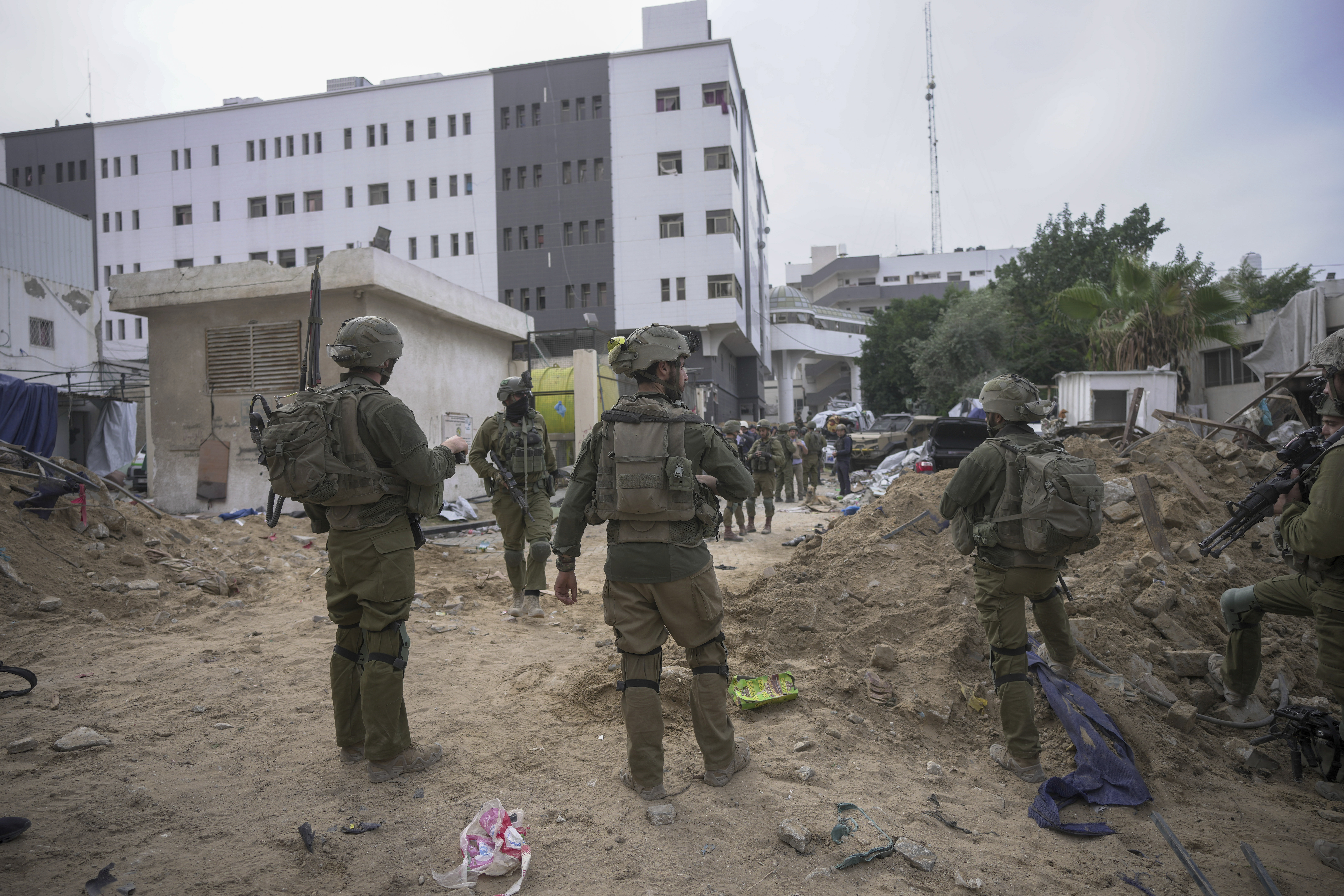US breathes small sigh of relief as Israel withdraws some troops from Gaza
But the Biden administration still wants Israel to move more quickly toward low-intensity ops.


The Biden administration sees Israel’s withdrawal of thousands of troops from Gaza as a sign it’s listening to Washington and shifting to lower-intensity military operations, per three U.S. officials, though the transition is going slower than the U.S. would like.
The Israeli military confirmed on Monday that it was beginning to withdraw five brigades from operations in Gaza, including many reservists, citing the growing toll of the deployments on Israel’s economy.
The reduction will allow reservists to return to jobs back home and enable them to gather their strength for future operations, said Maj. Nir Dinar, a spokesperson for the Israel Defense Forces.
U.S. officials, who were granted anonymity to speak about sensitive discussions, are now breathing small sighs of relief. They view the reduction as a signal that Israel is beginning to finally shift away from large-scale bombing and more toward targeted, surgical strikes on senior Hamas leaders — a move the U.S. has long been urging as the civilian death toll among Palestinians continues to rise.
“These adaptations aim to ensure effective planning and preparation for the continuation of operations in 2024,” Dinar said. “The IDF recognizes the need to plan ahead, anticipating additional tasks and warfare throughout the year.”
Israel always planned to ultimately shift to lower-intensity combat in Gaza, but the move was repeatedly delayed because clearing operations took longer than anticipated, said one of the U.S. officials.
“What we’re seeing is the beginning of a transition,” the official said. A second official added that the administration is pleased to see the shift but that the U.S. would have preferred the changes much sooner.
But Israeli officials say the fighting will last well into 2024. And U.S. officials are skeptical that any shift will happen quickly.
The National Security Council did not respond immediately to a request for comment.
In northern Gaza, Israel has dismantled much of the Hamas infrastructure and cleared the area of many militants, the first official said. But in the south, where there is still active fighting, the U.S. is not seeing any decrease in Israel’s military presence, the official added.
The message to change course was delivered personally in recent weeks by national security adviser Jake Sullivan and Defense Secretary Lloyd Austin, the former four-star general who oversaw the U.S. drawdown from Iraq in the early 2000s.
“We all know that any military operation, any large-scale military operation, will have phases to its campaign. And as you go from one phase to the next, you know, your stance shifts a little bit, your activity shifts a little bit because you begin to focus on — on different things,” Austin told reporters in Tel Aviv last month.
Asked whether the Israeli military is beginning to shift to a different phase of the war, an Israeli official said, “We adapt our operations to the situation on the ground with the understanding that it will take time to achieve our goal of dismantling Hamas in Gaza.”
The killing of a senior Hamas leader, Saleh al-Arouri, in a suspected Israeli drone strike in a stronghold of the Lebanese militant group Hezbollah near Beirut on Tuesday, could be another sign Israel is ready to shift to more surgical operations, the second U.S. official said.
But others are concerned that the strike could prompt a response from Lebanese Hezbollah, which has so far refrained from getting more deeply involved in the war. The group has exchanged near-daily fire with Israel since the Oct. 7 attacks, but the violence has been mostly limited to the border between the two countries.
However, Hezbollah leaders have recently warned that the group would respond strongly to any assassinations on Lebanese soil. After the strike, Hezbollah said in a statement on Telegram that it would take “retribution” for Arouri’s killing “at the right time and right place.”












